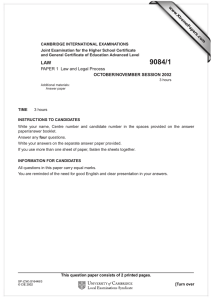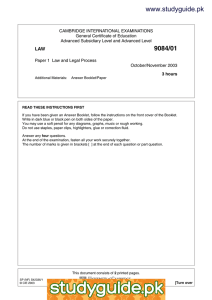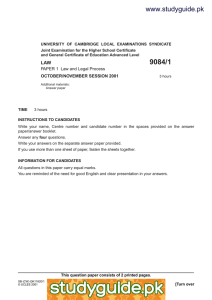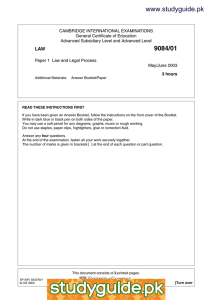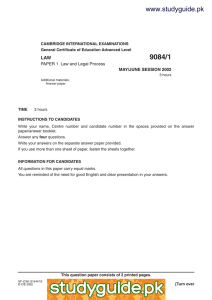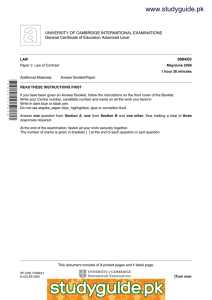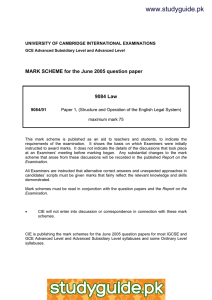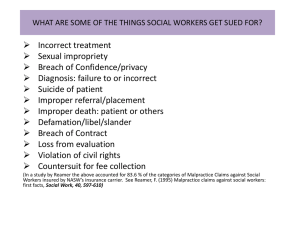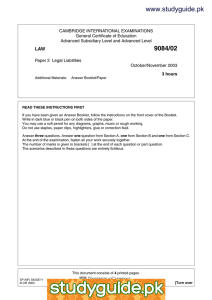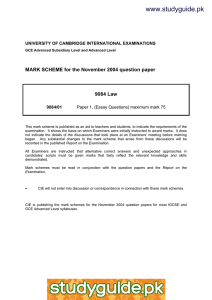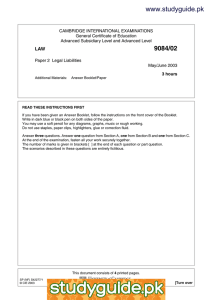www.studyguide.pk
advertisement
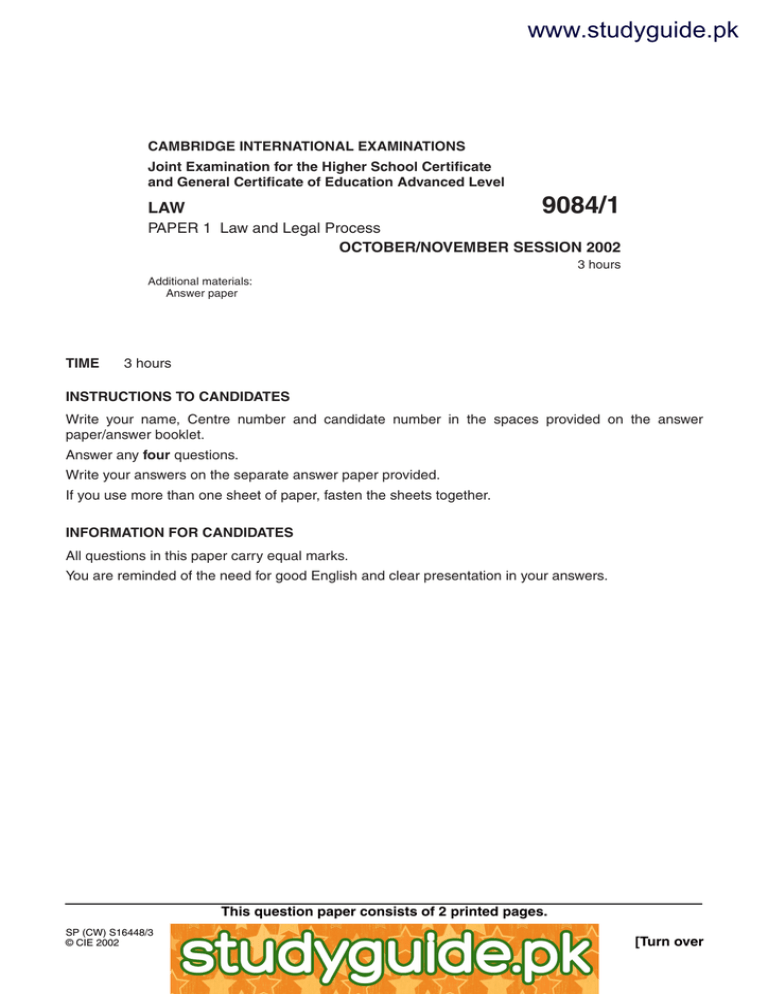
www.studyguide.pk CAMBRIDGE INTERNATIONAL EXAMINATIONS Joint Examination for the Higher School Certificate and General Certificate of Education Advanced Level 9084/1 LAW PAPER 1 Law and Legal Process OCTOBER/NOVEMBER SESSION 2002 3 hours Additional materials: Answer paper TIME 3 hours INSTRUCTIONS TO CANDIDATES Write your name, Centre number and candidate number in the spaces provided on the answer paper/answer booklet. Answer any four questions. Write your answers on the separate answer paper provided. If you use more than one sheet of paper, fasten the sheets together. INFORMATION FOR CANDIDATES All questions in this paper carry equal marks. You are reminded of the need for good English and clear presentation in your answers. This question paper consists of 2 printed pages. SP (CW) S16448/3 © CIE 2002 [Turn over www.xtremepapers.net www.studyguide.pk 2 Answer any four questions. 1 It is sometimes said that the objective of the court when interpreting a statute is to discover the intention of Parliament. Assess the validity of this statement and consider the tools available to the courts to carry out this task. [25] 2 The role of the lay magistrate has increased significantly over the past few years. Discuss this statement. [25] 3 Evaluate the effectiveness of tribunals and arbitration as a means of conflict resolution. 4 Explain the extent to which the different forms of mistake may affect the validity of a contract. [25] 5 ‘Every failure to perform a primary obligation is a breach of contract. The secondary obligation on the part of the contract-breaker to which it gives rise by implication of the common law is to pay monetary compensation to the other party for the loss sustained by him in consequence of the breach’ … Lord Diplock in Photo Production Ltd v Securicor Transport Ltd [1980]. Evaluate the way that compensation is assessed in cases of breach of contract. [25] [25] 6 Critically analyse the extent to which the occupier is liable for accidents sustained by visitors and trespassers to his premises. [25] 7 Define what is meant by defamation. Critically assess what defences may be raised by a defendant to an action in defamation. [25] 8 Explain and distinguish the terms F.O.B. and C.I.F. in international contracts for the sale of goods and discuss their use. [25] 9 Consider the main defences that an accused person may raise when charged with murder. Evaluate the effects on the charge if the defence is successful. [25] 10 Some acts can constitute both a crime and a tort. Discuss how and why procedure, sanctions and remedies are different in criminal and civil cases. [25] 9084/1/O/N/02 www.xtremepapers.net
